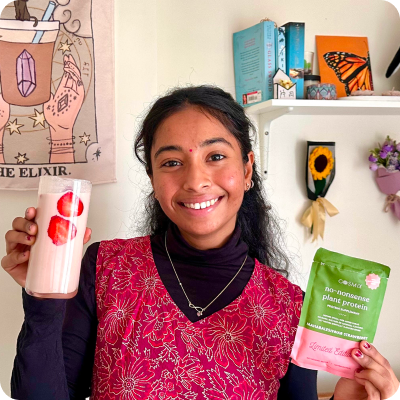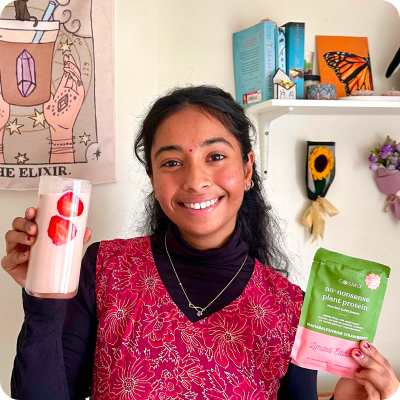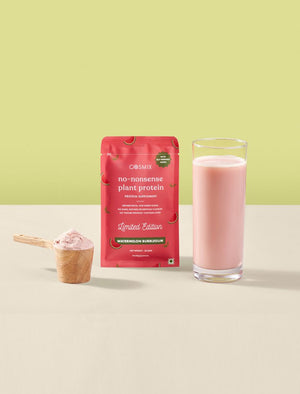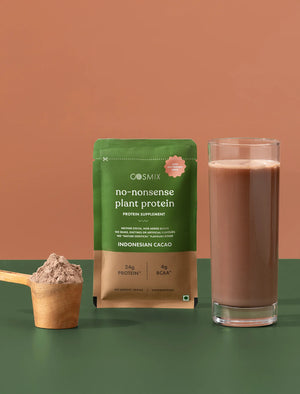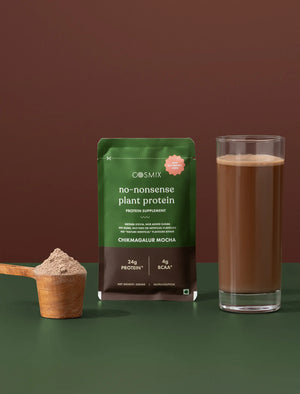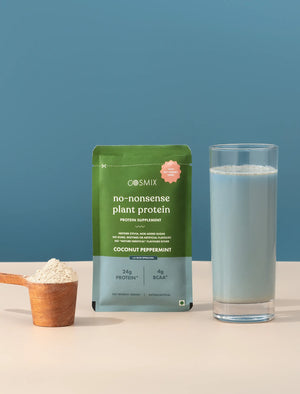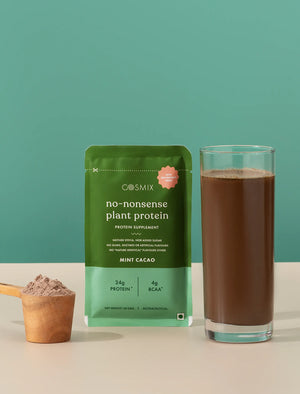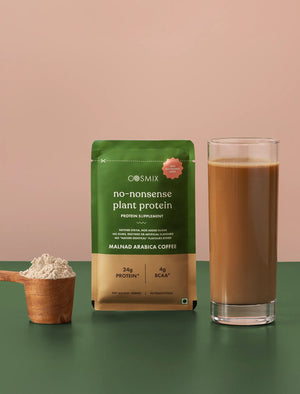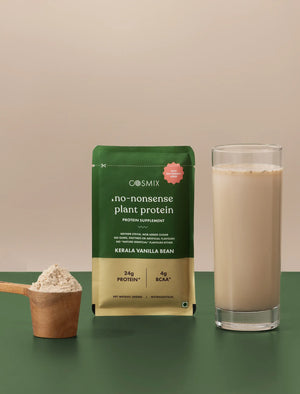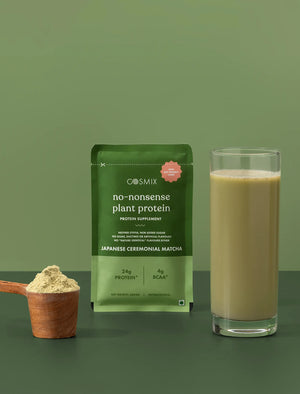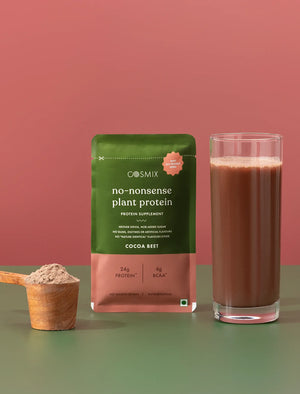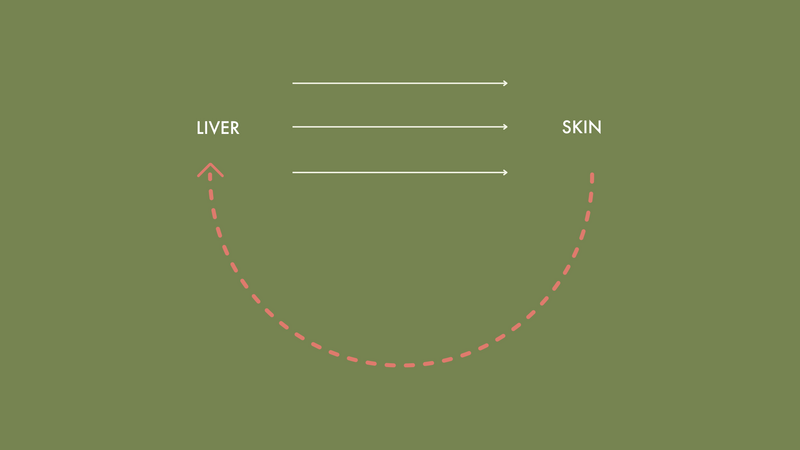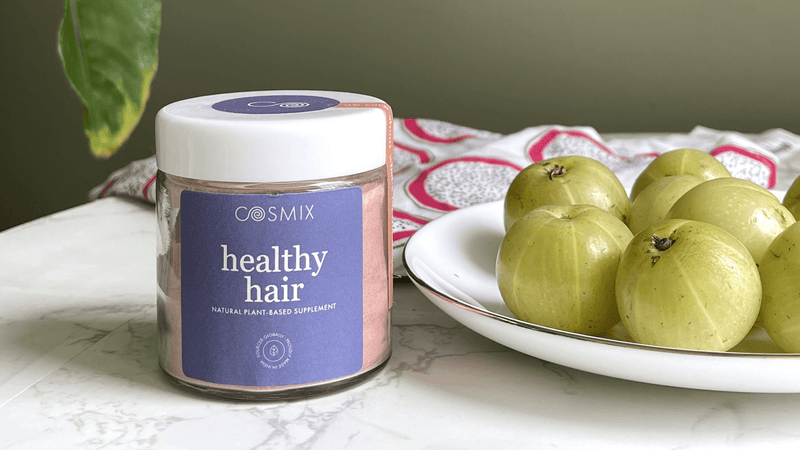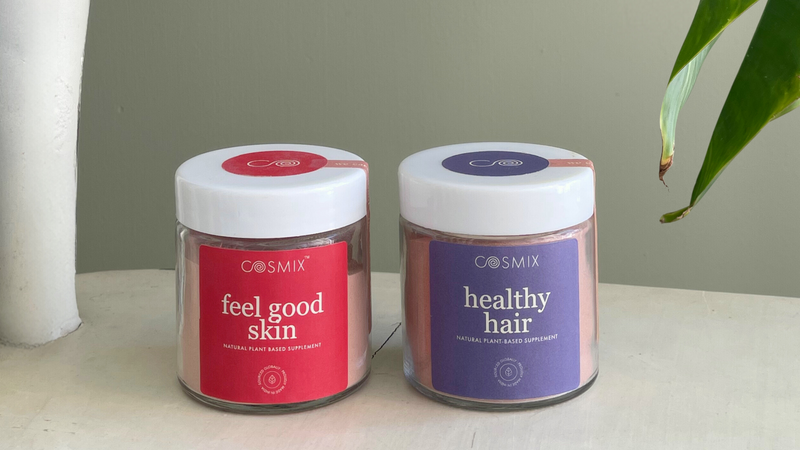My relationship with my skin has always been complicated. Despite eating healthy for a couple of years, I recently experienced a major breakout on my face. It was frustrating and disheartening. After some introspection and guidance, I realized that certain foods I was consuming didn’t suit me, and I was navigating a stressful period in my personal life. Together, these factors took a toll on my body, manifesting as severe acne. Today, my skin is much better and still healing from that recent episode.
What's Inside Shows On Your Skin
Before we dive into the root causes of skin concerns, it’s important to understand that your skin is a mirror of your internal health. It offers clues about the state of your liver, kidneys, gut, and hormones. It can be challenging to find a silver lining when dealing with a skin condition, but it's quite remarkable that your body is signaling for help. While topical products can help, only relying on them and not addressing your internal state will only prolong your healing and you’ll never end up targeting WHY the problem came up in the first place or as we like to call it at Cosmix, you’ll never identify the root cause.
Let’s get to the science of skin and how it connects to other parts of your body. Apart from providing some holistic lifestyle tips, I will also recommend which product would work well from my range at Cosmix.
Interconnected Root-Causes of Skin Issue:
1. Skin and Liver
Detoxification Role: The liver is a powerhouse organ that plays a crucial role in detoxifying your body. When the liver is overburdened with toxins from a poor diet, environmental pollutants, or medications, it struggles to process these effectively. When this happens, your skin, the body’s largest detox organ, takes on the extra load. This can manifest as breakouts, rashes, or dull, tired-looking skin.
Indicators of Liver Stress: If you've indulged in a high-fat diet recently, it can strain your liver, especially if these fats are of the unhealthy variety found in processed foods. Additionally, signs of estrogen dominance (such as severe PMS, irregular periods, or PCOS) can indicate that your liver is not efficiently metabolizing hormones. Antibiotics can also disrupt liver function by affecting the gut microbiome, which is closely linked to liver health.
Holistic Tips: To support your liver, incorporate foods rich in antioxidants and phytonutrients, such as leafy greens (kale, spinach), cruciferous vegetables (broccoli, Brussels sprouts), and berries. Hydration is also key; drinking plenty of water helps flush out toxins. Cosmix ‘Love Your Liver' blend, which includes adaptogens and superfoods known for their liver-supporting properties such as Bhoomi Amalki, Schisandra and Milk Thistle, can provide the little nudge that your liver needs from time to time.
2. Skin and Stress
Stress Response: When you're stressed, your body enters a fight-or-flight mode, activating the sympathetic nervous system. This response diverts energy away from non-essential functions like skin repair and regeneration. Chronic stress leads to sustained high levels of cortisol, a hormone that increases inflammation throughout the body and exacerbates skin conditions like acne, eczema, and psoriasis.
Cortisol and Hormones: Elevated cortisol levels can disrupt the delicate balance of other hormones, leading to issues such as insulin resistance and increased androgen production. These hormonal imbalances can result in more oil production and clogged pores, a perfect recipe for acne.
Holistic Tips: Incorporate stress-reducing activities into your daily routine. This could be anything from yoga, meditation, or deep-breathing exercises to hobbies that bring you joy and relaxation. Regular physical activity helps reduce cortisol levels and boosts endorphins, which are natural stress relievers. You can also incorporate our mix that targets short-term and long-term stress, ‘Bring Me Bliss’. It contains nerve strengthening superfoods that are known to build resilience in the body and replenish frazzled nerves.
Also, your skin condition could create lots of stress and resentment around your body. What’s helped me is working towards radical acceptance of myself. It’s hard and I struggle with the idea sometimes, but for the most part this is the voice I use with myself these days. I’ve spent years being uncomfortable with my skin and while that can be temporarily motivating to take action, in the long term it doesn’t help. If you’re stressed or upset with yourself, ask yourself “how would you speak to your sister or best friend if they were going through a tough time with their skin - would you think any less of them? Would you punish them or would you nourish and gently nudge them to take care of themselves while still loving them?” Whatever your answer was, you do that for YOU. When you’re giving yourself more love and acceptance you’re automatically worrying a lot less about how others will perceive you and therefore also managing your stress better!
3. Skin and Gut
Leaky Gut: Poor gut health can lead to leaky gut syndrome, where the gut barrier breaks down, allowing toxins to enter the bloodstream. This inflammation can increase sebum production, leading to acne.
Short Chain Fatty Acids (SCFAs): Healthy gut microbes produce SCFAs, which help heal cells, reduce inflammation, and regulate skin functions. A poor gut microbiome results in fewer SCFAs, hindering the gut-skin axis from calming inflammation and nourishing the skin.
Holistic Tips: Incorporate probiotics and prebiotics into your diet to support gut health. Fermented foods like yogurt, kefir, and sauerkraut can help maintain a healthy gut microbiome. If your breakouts are due to the gut, I recommend supplementing with ‘My Happy Gut’. It contains triphala, which is known to soothe and heal the gut lining to prevent leaky gut syndrome.
4. Skin and Hormones
Hormonal Imbalances: Hormones play a significant role in skin health, especially androgens like testosterone. Conditions like PCOS lead to an overproduction of testosterone, which can increase the activity of sebaceous glands. This results in more oil production and can clog pores, leading to hormonal acne. Hormonal fluctuations during menstruation, pregnancy, or menopause can also affect skin health.
Holistic Tips: Maintaining hormonal balance involves a multifaceted approach. A diet rich in whole foods, regular physical activity, adequate sleep, and stress management are crucial.
5. Skin and Food
Dietary Triggers: Your diet has a direct impact on your skin. Certain foods can trigger or exacerbate skin issues due to their effects on blood sugar levels, hormone production, and inflammation.
Foods that can cause a trigger:
- Sugar: Consuming high amounts of sugar spikes insulin levels, which in turn increases androgen production. This can lead to enlarged sebaceous glands and more oil production, resulting in acne.
- Low-Fat Foods: Fats are essential for healthy cell membranes, including those of skin cells. Low-fat diets can deprive your skin of the necessary fats it needs to stay healthy and hydrated.
- Processed Foods: Ingredients like vegetable oils, seed oils, soy protein isolates, and dairy products can be inflammatory and disrupt hormonal balance. Smoking and alcohol also contribute to oxidative stress and inflammation, worsening skin conditions.
Holistic Tips: Focus on a balanced diet that includes plenty of fruits, vegetables, healthy fats (such as those from avocados, nuts, and seeds), and lean proteins. Avoid highly processed foods and limit sugar intake.
Embrace Your Skin with Kindness
I understand how difficult it can be to love your skin when it’s not behaving the way you want. For years, I battled with my skin, and while frustration can sometimes be a motivator, it isn’t beneficial in the long run. It’s so important to practice radical acceptance and self-love. When you give yourself more love and acceptance, you automatically worry less about others' perceptions and manage stress better.
